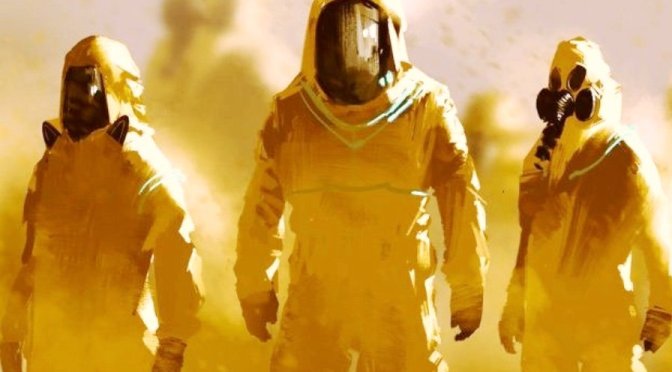[ by Jose Sousa-Santos ]
The COVID-19 pandemic has created a vulnerable landscape in the Pacific islands which transnational criminal organisations and local crime actors have been quick to capitalise on. As economies falter, criminal actors are seeking to take advantage of the vacuum with significant implications for human security.
The closure of borders and the global restriction on travel has devastated Pacific island economies – both formal and informal – which are heavily reliant on tourism and related industries as well as remittances from abroad. For example, ADB project GDP growth could drop by as much as 15 per cent this year.
Unemployment figures are likely to be staggering as well, as close to 40 per cent of the informal workforce is dependent on tourism. Remittances are estimated to fall by 13 per cent – in the case of Tonga personnel remittances are expected to contract by 40.7 per cent. Fiji has responded by handing down a $390 million stimulus package as the centrepiece of its 2020-21 budget. The economic fallout, however, is already impacting villages and communities and urban areas across all levels of society. For criminal syndicates this presents an opportunity.
One of the major features of the Pacific security environment – increasingly visible over the last five years – is the rising sophistication, range and number of transnational and local organised crime actors operating within the region. This has led to the growth of illicit shadow economies and power structures which have responded to the impact of the Covid-19 pandemic by adapting with the aim to benefit from it. Moreover, there is a blurred line between licit industries and illicit activities such as human trafficking in industries like logging, mining and fishing.
In Pacific societies it is common practice for there to be one or two employed members of an extended family structure on which the family relies for financial support. The high level of job losses due to the shutdown of businesses reliant on tourism compounded with the loss of remittances, has created a demographic that is vulnerable to exploitation by criminal entities.
In a region already experiencing a youth bulge , anecdotal evidence suggests that young people are being actively recruited by both local and international criminal syndicates. The benefit of acquiring members who have no criminal history or background is of great value to criminal groups. Once compromised, these new recruits are the perfect assets. Their lack of a criminal background means they are able to operate under the radar of law enforcement and intelligence agencies.
These new recruits are therefore well placed to be employed by and infiltrate government, law enforcement, defence and other key agencies of interest to criminal organisations. This creates a new dynamic which has the capability to circumvent strategies in place to address and mitigate the threat posed by the infiltration of key agencies by criminal networks.
Women previously employed in the tourism and related sectors and who now find themselves in financial distress are increasingly vulnerable to sexual exploitation. Recent interviews with law enforcement and civil society organisations reveal that the numbers of sex workers have risen in urban areas. Anecdotal evidence indicates that women and girls are also being targeted by crime groups who view them as potential source of revenue. Reports of a rise in human trafficking of young girls and women from the villages into the cities have been confirmed by sources in law enforcement and reflect global concerns and trends.
Lured by promises of employment and the ability to send remittances back to their families in their villages, women and girls are easy targets for human trafficking. Current evidence only points to these women being trafficked domestically, however, the risk of transnational criminal syndicates attempting to traffic these young women internationally via maritime routes is a real danger. Of deep concern is the potential rise in child sex tourism. Despite efforts to stop sex tourists at Australian and New Zealand borders, lessons from conflict and disaster zones tells us that it is highly likely we will see an increase in sex tourism once international borders re-open.
Criminal actors profiteering from vulnerability is not new. It is, however, being compounded and facilitated by the challenges posed to the Pacific region by Covid-19 and the pressures being placed on government agencies tasked with responding to both the pandemic and existing criminal activities. Agencies are already stretched by the Pacific’s geographic realities, its extensive and porous jurisdictional boundaries, and differences in governance and heterogeneity in law enforcement capacity. Pandemic profiteering will only add to a region under criminal duress as we are already seeing elsewhere.
In communities and states that do not have the resources to prevent and mitigate the security and societal impacts of illicit activities such as drug and human trafficking, organised crime syndicates can capitalise on the opportunities posed by the COVID-19 pandemic to further entrench themselves in the region and strengthen their position. This will lead to a greater climate of significant regional insecurity, impacting all layers of Pacific society.
The increase in transnational criminal activities in the Pacific region – specifically drug trafficking – reflects that the region has become progressively valuable to Asian and Latin American transnational crime syndicates as both a transit route onwards to more lucrative markets, and, importantly, as a destination as indigenous and regional organised crime groups take root. The negative impact of the Covid-19 pandemic on Pacific countries’ economies has further exacerbated this by creating a multi-layered landscape of opportunity for local, regional and trans-national criminal entities. The Pacific Islands Forum Boe Declaration on Regional Security (to which Australia and New Zealand are signatories) identifies transnational crime as one of four primary challenges in the Pacific region alongside human security.
It serves as a galvanising force to enhance cooperation, information and intelligence sharing, and pursue the ratification of international conventions such as the Palermo Convention. A key part to its success will be the strengthening of national capacities; building greater linkages between Pacific law enforcement and other relevant agencies; and building the necessary supporting systems within the health, education and social service sectors to support communities and individuals.
Unless concrete efforts are made to address this threat, it will impact governance and weaken traditional power structures, and further enable corruption and the infiltration of law enforcement, customs and defence as well as other sectors. At the human-level, the impact has the potential to be devastating.
It is in these areas where Australia and New Zealand can and should move swiftly to support the Pacific region. To delay or rely on a business-as-usual approach enables criminal syndicates both indigenous and transnational to continue to capitalise on the current landscape of ‘opportunity’ created by the COVID-19 pandemic.
Pacific peoples demonstrate extraordinary resilience in challenging times. Now is no different. However, the pervasive and damaging threat that transnational crime poses to Pacific nations, society and traditional power structures is still to be seen. Partners such as Australia and New Zealand can have a positive impact working alongside traditional mechanisms. However, if resources are not allocated now to address these issues, a post COVID-19 Pacific landscape will be a much more challenging environment in which to address these threats.
Jose Sousa-Santos is a senior associate (Southeast Asia and Pacific regional security) at Victoria University of Wellington, the managing director of Strategika Group, and a visiting fellow at the Australian National University Cyber Institute.



